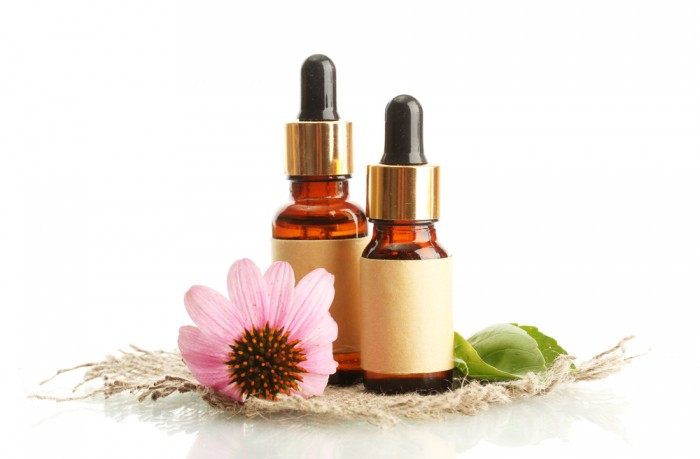Tired? Boost Your Immune System with Herbal Medicine

Feeling a little off? Whether your immune system needs a boost or your menstrual cycle is out of whack, herbal medicine might just offer a natural, holistic path to get your health back on track.
“Western herbalism draws from the rich tradition of herbal medicine combined with the sensibility of current science—and its art and science are very adaptable to your personal health situation,” says Britta Bloedorn, a clinical herbalist in Missoula, Montana. “Many conditions, symptoms, and issues can benefit from an herbalist approach to health.”
Want to learn more? Check out Britta’s feedback below on our questions about herbal medicine and the best herbs for common women’s health issues. You can also attend her free “Herbal Medicine for Women” webinar for the Women’s Voices for the Earth Body & Soul Series this week (Wednesday, February 26th at 5pm Pacific, 8pm Eastern). It will explore topics ranging from menstrual irregularities and menopausal complaints to hormonal or immune imbalances affecting whole body health and discuss herbal medicine as a holistic, integrative health care choice.
Why is herbal medicine a great healthy choice for women?
Britta Bloedorn: Herbal medicine is a great holistic health choice for many women because of its ability to center care on the individual as a person—rather than on a disease process, condition, or symptoms alone. I practice herbal medicine in a holistic and client-centered model. A holistic approach to health tends to the person, not just the disease or illness in question. It addresses specific symptoms and their underlying health causes to restore health and vitality, to strengthen and support the body’s innate healing processes, and to aid prevention of disease.
This approach works very well for many common women’s sexual and reproductive health concerns, as those often can be reflective of underlying imbalances of hormonal or immune regulation. Appropriate herbal and natural medicine therapeutics are effective in helping shift health processes, such as hormone balancing (instead of replacement or suppression), to address symptoms and offer long-term, sustained solutions.
What are some of the most commonly used herbs to treat immune deficiencies?
Britta: When working with a person with immuno-deficiencies we look at the reasons or causes and ways a compromised immune system represents to suggest appropriate therapeutic strategies. For example, for some clients a tonifying and overall system strengthening approach may include traditional adaptogenic herbs, such as Eleutherococcus (Eleuthero), Astragalus (Astragalus), or Ganoderma (Reishi). For others, a more specific therapy to deal with acute infections of viral or bacterial nature may include herbs to actively enhance immune mechanism and stimulate innate defenses; to inhibit certain viruses or bacteria; circulatory stimulants; lymphagogues; and/or to address secondary symptoms and organ systems involved. Commonly used helpful herbs often include Echinacea (Coneflower), Commiphora (Myrrh), Usnea, Ligusticum (Osha), Lomatium (Lomatium), Ceanothus (Red Root), Althea (Marshmallow), among others.
What are some of the most commonly used herbs to treat menstrual irregularities?
Britta: There are many different herbal medicine therapeutics and remedies part of a holistic medicine approach to menstrual irregularities. From a holistic and health care provider’s viewpoint, I always need to try to understand first why a person is presenting with the particular complaints they do, whether these include bouts of dysmenorrhea (painful periods), uncomfortable PMS symptoms, amenorrhea (lack of menses), or irregular menstrual periods.
Menstrual irregularities may be caused by a variety of conditions, including hormonal imbalances, pregnancy, infection, disease, trauma, medications, endometriosis, or other health concerns. Understanding a person’s health constitution, their history, lifestyle and personal situation helps me offer the best client-centered care and herbal medicine therapeutics for them.
Some of the more commonly helpful herbs used include extracts of Vitex (Chaste Tree berry), Urtica (Nettle herb), Angelica sinensis (Dong Quai root), Zingiber (Ginger root), Cimicifuga (Black Cohosh), Viburnum opulus (Cramp Bark), and others. They may help balance hormones, support hormonal regulation and liver function, offer nutritional support, help inhibit inflammation, or assist with circulation.
Can you recommend a beginner’s guide to herbal medicine?
Britta: Some of my own personal and professional favorite ‘must-haves’ I recommend to students and clients always include the Medicinal Plants of the Mountain West (or the Pacific West or the Desert and Canyon West) and any of the late herbalist Michael Moore’s publications. His great work, knowledge and teachings have guided so many of us North American herbalists, educators, and researchers, and his books are excellent as well: full of a wealth of information, including plant therapeutics, botanical descriptions, preparation instructions, and great wit. Another nice introductory book I might recommend is Rosemary Gladstar’s Herbal Healing for Women.
Kamagra oral jelly Online something to buy the most convenient way. He doesn’t demand from you any actions except how to visit the website. And in separate with goods necessary to you to put the end. To specify your address and to wait for the supplier to whom you will give money.


LET'S GET SOCIAL